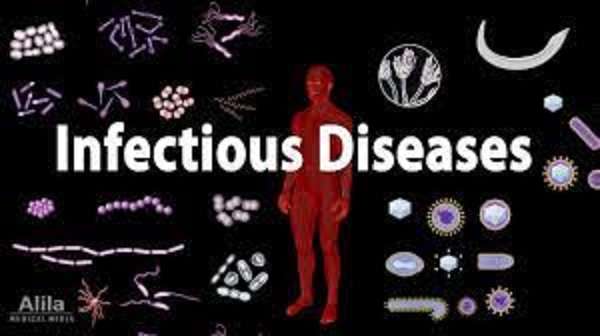
An Epidemiologist, Dr Japhet Olugbogi, has appealed to all levels of government to strengthen health systems against the widespread occurrence of infectious diseases in Nigeria.
Olugbogi made the call in an interview with the News Agency of Nigeria on Thursday in Lagos.
He said that the strengthening of health systems in Nigeria would also enhance epidemic response and health indices in the country.
According to the World Health Organisation, Nigeria’s health outcome indicators are still unacceptably high, despite modest improvements.
The WHO’s report stated that Nigeria also recorded 557 confirmed cases and 73 deaths from diphtheria in the last four months.
According to the health agency, 21 states in Nigeria have been affected by the diphtheria outbreak.
Diphtheria is an infection that is caused by a strain of bacteria known as Corynebacterium diphtheriae that releases tissue-killing toxins and spreads through exhaled droplets.
In his reaction, Olugbogi noted that a robust health system was crucial to reducing the disease’s burden, especially as the country continued to respond to various outbreaks.
He said that disrupted childhood vaccination schedules resulting from the COVID-19 pandemic had worsened the situation.
He noted that routine immunisation was the most effective way of reducing the impact of the outbreak, saying that continued surveillance and the development of new treatments were also necessary.
“A recent report by WHO shows that 6.2 million children in Nigeria did not receive a single dose of life-saving vaccines from 2019 to 2021.
“This is a huge gap.
“Concerted efforts must be deployed to reach these children and restore routine immunisation programmes to the level it was before COVID-19,” Olugbogi said.
He added that it was crucial to encourage the uptake of the vaccine, strengthen the health systems, and provide logistics to those involved in the immunisation activities.
“We must increase awareness on the life-saving benefits of taking vaccines which would save children from sicknesses and also save the parents from the physical, psychological, and economic burden of caring for a sick child,” he said.
Olugbogi said that vaccinating a child with pentavalent vaccines containing diphtheria toxoid at week six, 10, and 14, as well as at 15-18 months was an effective means of preventing diphtheria.
According to him, booster doses should be administered between ages four to seven, then at age 10, and subsequently every 10 years.
The physician advised healthy and nutritious eating to boost the immunity of citizens, especially children against diseases, noting that poverty had made many people embrace poor eating habits.
He complained that exclusive breastfeeding of babies in the first six months of life was still low among mothers.
Olugbogi said this had deprived many babies of antibodies that could assist ward off diseases, advising nursing mothers to embrace exclusive breastfeeding of infants.
He added that a coordinated response and community engagement could support control of the ongoing outbreak.
NAN reports that diphtheria can affect all age groups, although unimmunised children are particularly at risk.
Symptoms typically include a thick, gray coating in the nose and throat along with a sore throat, swollen glands, weakness, and mild fever. If the condition affects the skin, ulcers, and open sores can appear.
Nigeria had recorded diphtheria outbreaks in the past, the most significant outbreak reported was between February and November 2011 in the rural areas of Borno State, where 98 cases were reported.
The country is currently faced with several public health emergencies such as Lassa fever, cholera, mpox, meningitis and a humanitarian emergency in the northeast.
(NAN)










